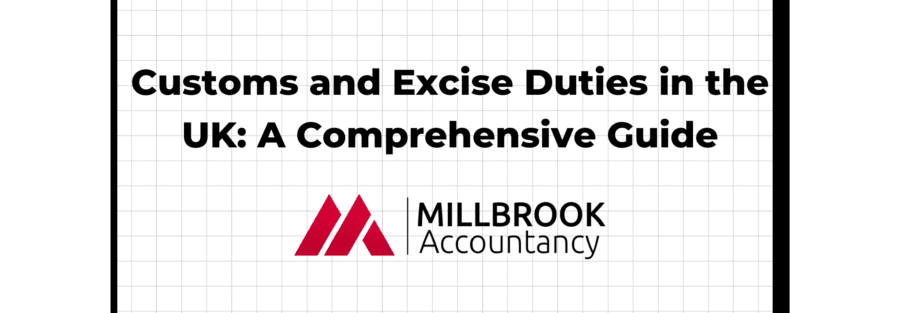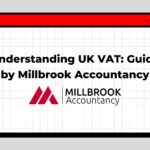Introduction Of Customs and Excise Duties in the UK
In the realm of financial regulations, customs and excise stand as crucial terms, influencing the importation and taxation of goods in the United Kingdom. This article aims to provide a detailed exploration of these terms, shedding light on their distinctions, application, and impact on various products and industries.
Understanding Customs and Excise
At its core, excise and customs duties serve as taxes levied on goods entering the UK. These taxes serve the dual purpose of generating revenue for the government and safeguarding local industries from foreign competition. This comprehensive guide will delve into the intricacies of these taxes, discussing their calculation methods and how they relate to different types of goods.
Excise Duty: Unveiling the Details OF customs and excise IN UK
Unlike Sales Tax or VAT, excise duty targets specific goods, often referred to as ‘indirect tax’ due to its inconspicuous nature to consumers. The amount payable hinges on the weight or volume of the product, not its value. Manufacturers or importers bear the brunt of excise duty, a departure from the end-consumer payment model. This tax is especially prominent on goods considered detrimental to public health or the environment, such as tobacco, alcohol, and gasoline.


Excise duty in the UK extends to goods like tobacco, alcohol, and fuels. The rate of excise duty fluctuates depending on the product, with tobacco incurring a higher duty than clothing. It’s essential to distinguish excise duty from VAT, as the former is specific to certain products, while the latter is a broad-based tax on goods and services.
Forms of Excise in the UK
The UK imposes various forms of excise on goods and services, ranging from alcohol duty to vehicle excise duty. These indirect taxes contribute to specific social causes related to the taxed product or service, ensuring a targeted and purposeful utilization of the generated revenue.
- Alcohol Duty: Levied on alcoholic beverages, the duty varies based on the type and strength of the drink.
- Air Passenger Duty: Imposed on passengers of UK-registered aircraft, the tax amount depends on factors like destination, class of travel, and passenger age.
- Vehicle Excise Duty: A tax on vehicles, the amount payable is influenced by factors like emissions and vehicle type.
Unveiling Customs Duty in the UK
Customs duties, on the other hand, are levied on goods imported from foreign countries, with the payable amount contingent on the product’s value. Drawing a clear distinction between excise and customs duties, we explore the nuances of customs duty rates and its applicability to different types of goods.
Differences Between Excise and Customs Duty
While both excise and customs duties share the commonality of being payable on foreign-bought goods, their rates vary based on the type of product. For instance, excise duty on tobacco surpasses the customs duty on clothing. However, exceptions exist, such as when excise duty is not applicable when buying alcohol or tobacco products from another EU country.
VAT: Another Layer of Taxation
Both excise and customs duties operate independently of Value Added Tax (VAT), a pervasive tax on all goods and services in the UK. VAT is calculated based on the value of the product or service, further adding to the layers of taxation governing international trade.
Tax and Customs for Goods Sent to the UK
Navigating through the complexities of taxation for goods arriving in the UK involves obtaining an EORI number, classifying goods using commodity codes, calculating duty and VAT, and potentially acquiring an import license. These measures ensure compliance with legal requirements and proper payment of taxes and customs charges.
- EORI Number: Essential for businesses involved in international trade, the Economic Operator Registration and Identification (EORI) number is a unique identifier.
- Commodity Codes: The UK uses commodity codes to classify goods for import and export, ensuring accurate duty and VAT calculations.
- Import License: Depending on the type of goods, an import license may be required for legal importation into the UK.
Banned and Restricted Items in the UK
Understanding the limitations on bringing certain items into the UK is crucial. Items such as drugs, counterfeit goods, rough diamonds, and indecent materials are among the restricted goods. Adherence to these regulations prevents legal repercussions and fines.
Excise Duty on Various Items in the UK: A Detailed Breakdown
The UK applies excise duty on a diverse range of items, each with its own specific rates. Understanding these rates is essential for both consumers and businesses involved in the production and sale of these products.
Tobacco Duty Rates
| Tobacco Product | Rate |
|---|---|
| Cigarettes | 16.5% of the retail price plus £4.16 on a packet of 20 |
| Cigars | £2.59 on a 10g cigar |
| Hand rolling tobacco | £5.24 on a 25g packet |
| Other smoking tobacco and chewing tobacco | £2.85 on a 25g packet |
Beer Duty Rates
| Strength (ABV) | Beer Duty Rate Per Litre for each % of Alcohol |
|---|---|
| More than 1.2%, up to 2.8% | 8.42 pence |
| More than 2.8%, up to 7.5% | 19.08 pence |
| More than 7.5% | 24.77 pence |
Cider Duty Rates
| Type of Cider | Strength (ABV) | Rate per litre |
|---|---|---|
| Still | More than 1.2%, up to 7.5% | 40.38 pence |
| Still | More than 7.5% but less than 8.5% | 61.04 pence |
| Sparkling | More than 1.2%, up to 5.5% | 40.38 pence |
| Sparkling | More than 5.5% but less than 8.5% | 279.46 pence |
Spirit Duty
| Type of Spirit | Rate |
|---|---|
| Spirit duty | £28.74 per litre of pure alcohol |
Wine Duty
Payable wine duty depends on the strength of the wine, still or sparkling—also, wine duty with more than 22% ABV at the same rate as spirits.
| Type of Cider or Perry | Strength (ABV) | Rate per litre |
|---|---|---|
| Still | More than 1.2%, up to 4% | 88.93 pence |
| Still | More than 4%, up to 5.5% | 122.30 pence |
| Still | More than 5.5%, up to 15% | 288.65 pence |
| Still | More than 15%, up to 22% | 384.82 pence |
| Sparkling | More than 5.5% but less than 8.5% | 279.46 pence |
| Sparkling | More than 8.5%, up to 15% | 369.72 pence |
Fuel Duty Rates
Fuel duty depends upon the type of fuel:
| Type of Fuel | Rates |
|---|---|
| Petrol, diesel, biodiesel and bioethanol | 57.95 pence per litre |
| Liquefied petroleum gas (LPG) | 31.61 pence per kg |
| Natural gas used as fuel in vehicles, eg biogas | 24.70 pence per kg |
| ‘Fuel oil’ burned in a furnace or used for heating | 10.70 pence per litre |
Customs Duty on Imported Goods
Exploring customs duty on imported goods involves understanding the thresholds for charges. Goods under £135 incur no customs charge, while gifts and higher-value items attract varying rates. This section guides individuals and businesses on the customs duty implications of their imports.
Conclusion: Navigating the Complexities OF customs and excise Duties in Uk
In conclusion, customs and excise duties play a pivotal role in shaping the fiscal landscape of the UK. This comprehensive guide has aimed to demystify the intricacies of these taxes, providing valuable insights for businesses, consumers, and anyone involved in international trade. As regulations evolve, staying informed about these duties becomes paramount for sound financial planning and compliance.
If You want Free consultation and avail our amazing services to boost your buisness Finance we are ready to help you Feel free to contact Millbrookaccountancy





